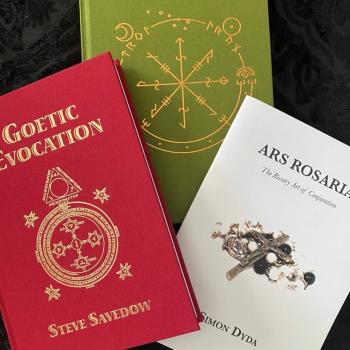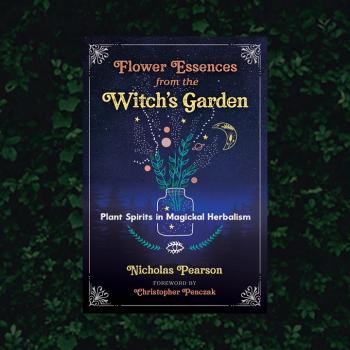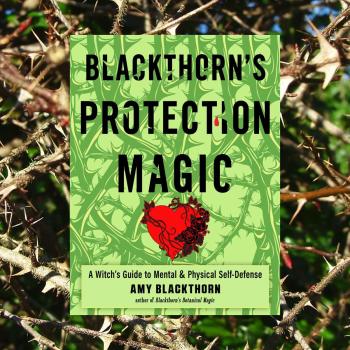In human society, religion serves the function of explaining our social stratification, and giving us a sense of where we fit in. Religion also attempts to explain or justify many of the injustices that are part of human life such as evil, suffering and death. What sets us apart as humans is our language, our ability to understand our individuality, and our spirituality. We use our language to describe our individuality and our spiritual self is a large part of that. Before the rise of monotheism, polytheistic societies accepted and often embraced the deities of neighboring cultures. They could see similarities in the gods of their neighbors. Religion as a descriptive term did not exist during the time of polytheism.
It was not until Christianity took hold of Western Civilization, and the intellectualism of the modern period that this tern came into use in the way it is used today. There are still many eastern traditions do not have an equivalent for our concept of ‘religion’ in their languages. While most understand the concept, there are many spiritual nuances that the English language does not have to describe various spiritual states that other cultures possess. On the topic of magic and witchcraft around the world; magic can be found in every culture. These cultures all have their own native words for magic and magic practitioners. (Strega, brujo, bokor, mambo, heksa, volva, wicce, wicca, witch, sorciere, and many many more) As we often hear, there are as many different definitions for magic as there are practitioners and infinitely more definitions held by non-practitioners. People by nature want to feel as though they fit in somewhere. We use titles and categories to set ourselves apart from other groups. Religion is a common way of doing this because it defines who someone wants to be as a person, gives one a sense of community and has a distinct set of beliefs that set members apart from non-members.
This gives many individuals a feeling of security, but when that security is threatened, people become very defensive and sometimes dangerous. With Paganism being such a broad umbrella term, encompassing many uniquely diverse sets of beliefs, and magic being such a wide spread phenomenon, it can be difficult to accurately discern where one fits in. Those that belong to a coven with a specific tradition or a heathen group worshipping a certain deity, have this sense of community and individuality. Many solitary practitioners struggle with this. Much of our time is spent studying in an attempt to pin point out beliefs, how we define ourselves, our practice and our craft. It is very difficult especially for beginners faced with so many different traditions to choose from. Nowadays, there is an abundance of published information online, however many new practitioners base everything they know on what they read online because of its easy access. Often false information is promulgated online either accidentally or intentionally. That is why it is important to seek your own answers, research and study and come to your own conclusions. If something doesn’t feel right or inspire you magically then discard it. Respect all knowledge, but also respect your own ability to discern what is useful and what is not. There are just as many definitions for the word witchcraft, and such a push to embrace the word witch, that it can be especially confusing for a male witch. Particularly those who are non-Wiccan, what do we call ourselves? We’re told that men are witches too, that warlock is too negative, and wizard to fantastic. Conjuror and Sorcerer remain, but what does that really mean and where do we fit in? When I was younger, in my teenage years, I called myself a witch. I practiced and studied witchcraft ceaselessly. We were told over and over again to ‘reclaim the word witch from its negative history.’ Now, I am twenty seven and after pondering multiple titles for my beliefs and my practice I don’t know that I’ve come any closer, but I have learned a lot about myself along the way. Magic, witchcraft, and sorcery (magicians, witches, and sorcerers) have always been a source of interest for me. Three very similar terms that appear to by synonymous, but in fact are quite different when you look at the details. For example, the word witch. It has many supposed roots and different words in other languages. They all have similar but slightly different meanings; some revered and some reviled. In the English language, the word witch, was used to persecute thousands of people during the Inquisitions. It was used to describe both men and women, and the crime they were guilty of was diabolical witchcraft. ALL of the accused were innocent people, but those that did hold on to the Old Ways were practitioners of folk magic and herbalism, not witchcraft. The words used to describe these people were in their native tongue, not the word witch. Today we embrace the word witch, and it has a much different meaning. A general term referring to practitioners of witchcraft is meant to describe both sexes, but what is witchcraft really? It is separate from the religion of Wicca, though many Wiccans practice witchcraft. Many use it to describe any and all magical practice. In reality all of these different practices have their own names. Some of them practiced by witches and others are not. I used to think of witchcraft in those general terms, but when I think about it in more depth, I see that witchcraft practices include: divination through the communication with shades of the dead (necromancy)….to be continued.
Part II
…veneficium (magic through poison), the use of flying ointments to alter consciousness and leave the body, shapeshifting, honoring the gods of the witches and the Elder gods.
For me, spellwork, often equated with witchcraft should be a distinct category of magic with smaller sub-categories, such as ritual or folk magic. Magic achieved through the means of witchcraft could be accomplished by summoning spirits/deities, veneficium, or altered states of consciousness. The witch could also turn to other methods such as sympathetic spells of folk magic, using herbs and other common items. Sometimes more complicated rituals would be used to call upon various celestial and infernal powers, or methods outside of the spectrum of witchcraft would be used.
Sorcery can be tricky to define because it combines many forms of magical a practice. While witches oftentimes honor specific deities, I choose to designate sorcerers as those who follow the nameless gods of magic. Sorcerers study magic in all of its forms, drawing power from myriad sources. By calling upon various spirits and deities, a sorceress is able to tap into that vein of power and direct it to their ritual. Whereas a witch could invoke or evoke the entity, a sorcerer often works with the collective energy surrounding the many archetypes of the entity. For example, instead of calling upon a specific deity of healing, sorcery would call upon the many faceted archetype that is the quintessence of all healing powers. Sorcerers in this way are able to utilize a multitude of magical techniques from different schools that differentiate them from Western European witchcraft.
Through the use of magical objects such as: herbs, potions, stones, symbols, or talismans; sorcerers are able to tap into the source of their powers to direct it to their ends. This is why many sorcerers are adept at magical artifice, creating magical objects that can be used in spellwork. The more knowledge one accumulates, the more options they have to draw from for their magic because at the very basest all power comes from the same source.
In my opinion, sorcerers are the “Renaissance men” of the magical community. Many witches are also great sorceresses as well, as sorcery is not exclusive one can practice both simultaneously. I personally identify more with the archetype of the sorcerer as far as my research goes, however I also identify mostly with European Traditional Witchcraft in practice.
The magician is our third distinct magic user. The magician is a person who uses ritual magic to summon various entities to do their bidding. The spellwork magicians perform is related to summoning spirits, casting circles of transmutation and spirit traps. Magicians use these entities to effect the physical world and achieve thei will.Magicians, like their counterparts on stage have “assistants” to carry out various tasks. And like all other magic practitioners they do share practices and borrow techniques when necessary.
Whether witchcraft, sorcery, or ritual magic; all have their advantages, and are capable of achieving the same ends. Personally, it is important for me to be able to distinguish from the three. In describing my own identity and the practices of other, keeping these distinctions provides a more nuanced way of describing magical practitioners instead of putting us all under the same umbrella.
















